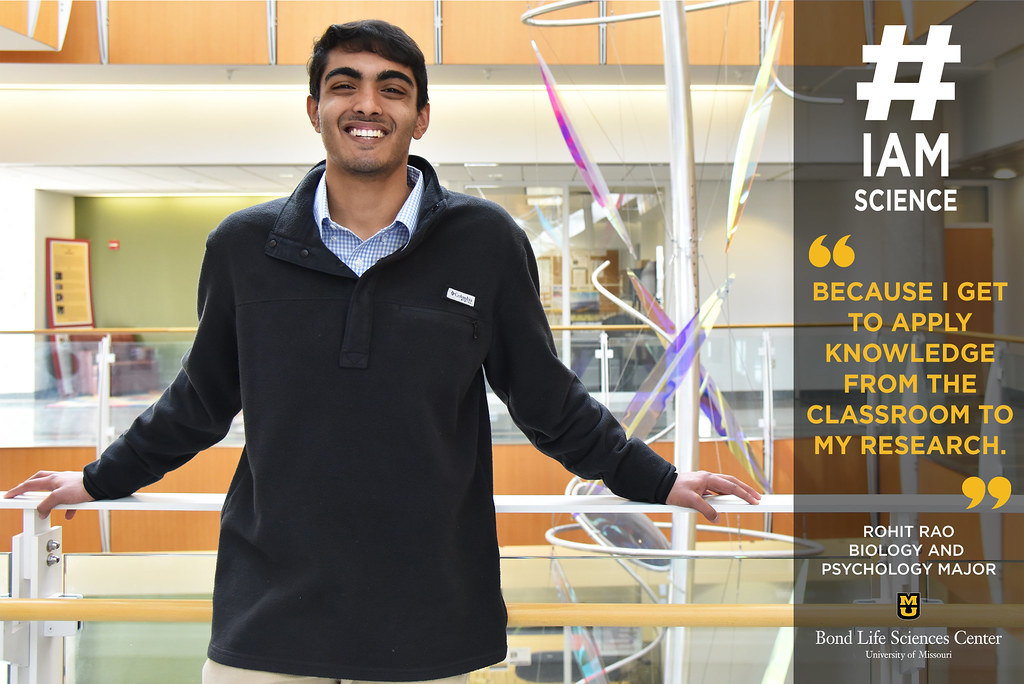
By Allison Scott | Bond LSC
“#IAmScience because I get to apply knowledge from the classroom to my research.”
There are a number of ways to get involved in research, but tennis probably doesn’t come to mind. Rohit Rao was practicing his serve alongside Kamal Singh in 2015 when the two began talking about science.
The junior biology and psychology double major expressed his interest in working in research, and Singh offered for him to join Stefan Sarafianos’ lab in the Bond Life Sciences Center.
“I got my first taste of research in high school and found a passion I didn’t know I had,” Rao said. “I wanted to continue to grow as a researcher when I went to college, and meeting Kamal was a pretty clear path to doing that.”
Rao understands the idea that research builds upon itself, which is why learning the basics before coming to Mizzou proved helpful.
“In high school, I did civil engineering research testing water quality from the Missouri River,” Rao said. “It was clearly something I could see myself doing for many years.”
The Columbia native is following in his family’s footsteps by pursuing science.
“My family is full of doctors and scientists, so having that has given me a greater understanding of what goes on,” Rao said. “I was never pushed into it, though, because it’s something I really want to do.”
After graduating next year, Rao plans on attending medical school and applying the knowledge he’s gained from all of his experiences.
“There are things I learn from the lab and then it’s taught in class, and there are things I learn in class that are helpful in lab,” Rao said. “There’s a big class-lab application interaction.”
Those applications have proved helpful for Rao while working with Singh. He has grown as both a scientist and a researcher since that conversation on the tennis courts years ago.
Now, he works with Human Immunodeficiency Virus (HIV) and contributes to the drug development process.
“We check the biochemical characterization of HIV proteins,” Rao said. “We run various reactions with the HIV proteins to determine their biological characteristics and how the virus mutates to become resistant to approved drugs. Once we do that, we can help choose drugs to overcome that resistance.”
This process serves as the precursor to clinical trials, which ultimately leads to drugs going on the market.
While the work is classified as basic research, Rao is happy to do his part.
“You can’t do applied research without the basic research,” Rao said. “In science, creating the foundation for others to build upon is critical.”

